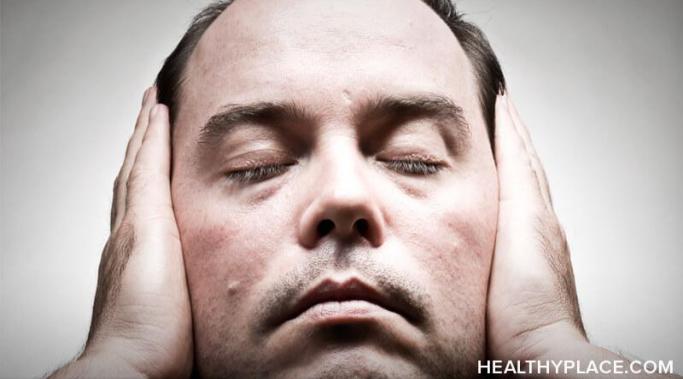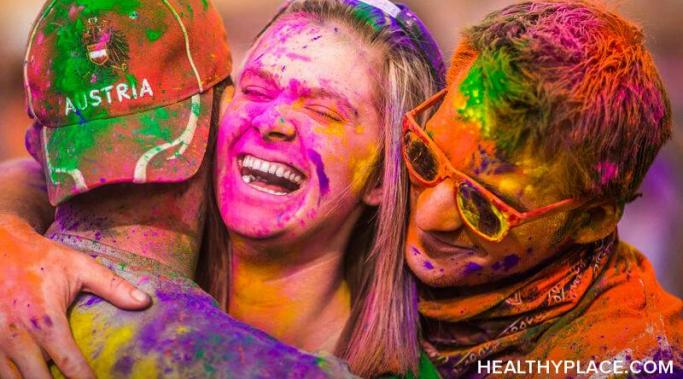Blogs
"Why do I get the birthday blues?" is a question that bothered me for years. Only recently did I learn that I am not the only one who feels sad on their birthday. While plenty of people look forward to celebrating their birthdays -- as they should -- there are enough folks who can only throw a pity party. Here's why I feel the birthday blues.
Having a structured and strategic morning routine helps me cope with anxiety and anxious thoughts. Starting the day on a positive, calming note sets the tone for the rest of the day. I incorporate specific practices into my morning routine to feel less stressed and happier. Here's how my morning routine helps my anxiety.
Healing borderline personality disorder (BPD) seemed like a vague concept. I used to romanticize healing, to think of it as this linear journey where each step forward meant fewer breakdowns and more sunshine. But in my experience, living with BPD feels like the mind is a treacherous landscape, and talk therapy just isn't enough. It's one thing to talk about wanting to be free of your triggers and to imagine yourself as some serene, enlightened version of yourself. But it's a whole different thing to feel that weight lift off you in real time. While difficult, healing borderline personality disorder is possible.
Managing binge eating disorder (BED) at work was one of the most challenging aspects of my life. The stress and the easy access to food created a perfect storm for my binge-eating episodes. I often found myself turning to food as a way to deal with the pressure, leading to cycles of overeating followed by intense feelings of guilt. Here's how I learned to manage binge eating disorder at work.
I have schizoaffective disorder, and I’m hearing voices again for the first time in a long time. Due to medication, I didn’t hear them for what seemed like ages. But now they’re back. Here’s what it’s like to be hearing voices again with schizoaffective disorder.
Therapy has changed my life. I wanted to go to therapy for years, but I only got access when I reached my breaking point in 2017. While I wish I had sought help sooner, I'm grateful I finally did because, honestly, therapy changed my life in unexpected ways. Whether you are on the fence about it or have decided it's not for you, read on to know just how impactful seeing a therapist can be.
I think focusing on expression can improve self-esteem. This year, I am attending the Burning Man festival for the first time, and I can already feel the impact it's having on my self-esteem. Self-esteem is something I have struggled with in my life, often feeling like I am not fully myself, not truly seen, and unable to express who I am deep inside. But the decision to participate in Burning Man is changing that narrative. The festival, known for its radical self-expression and communal ethos, is offering me a unique opportunity to explore and express my authentic self in ways that I never thought possible.
I have bipolar disorder, and I have studied abroad. From the moment I enrolled in my first college classes, I eagerly searched for opportunities to study abroad, unaware of the impact my oncoming diagnosis would have on my plans. Here's how bipolar disorder affects studying abroad.
Relapse is a scary word for any recovering gambling addict and a common hurdle in the recovery journey. My first relapse was at 11 months. I had been clean for almost one year. I had rebuilt my life, friendships, and even finances. But then stress from work hit, and that familiar itch came back. I justified it as a one-off, a harmless distraction, but before I knew it, one bet had turned into 10, then 100. I was experiencing a gambling relapse.
Anxiety can be about the present and future. This came to mind because we had a big transition in our family recently. My baby started kindergarten. Now, both of my girls are in school. The house is quiet, and life feels a little different. This isn't what I pictured life would be at this moment. I thought we would have at least one more little kiddo around to fill our house with noise and laughter, but that hasn't happened. I feel sad. I feel a little lost. I wonder what the future will hold since this phase of life has come sooner than I anticipated. This change brings up anxiety about the present and the future, but I know I can overcome it and live happily in the now.









